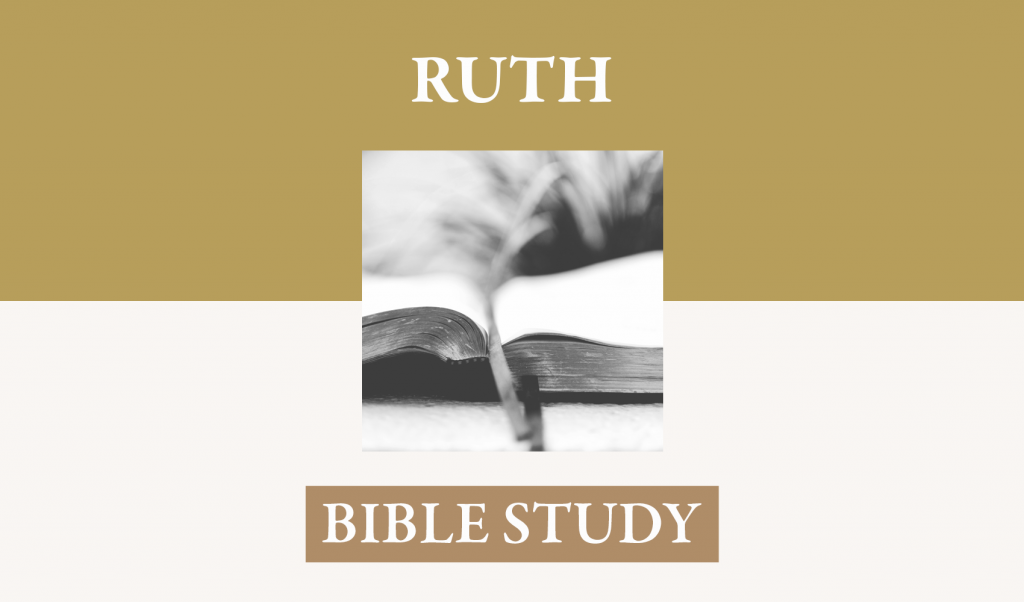INTRODUCTION: The book of Ruth is one of the most inspiring narratives in the entire Bible. The book is like a cool breeze on a hot summer day, especially considering that it is placed in the canon immediately after the book of Judges. Though the two books contain stories from the same time period in Israel’s history, the content and message could not be any more different. The book of Judges hammers home the difficult conclusion that the Israelites, God’s special people, were hard-headed idolaters who consistently ignored God’s instructions. The book of Ruth, on the other hand, tells a story of love and faithfulness during the most difficult of circumstances.
In fact, the contrast between the books helps illuminate the message of Ruth more clearly. In the book of Judges, the main characters (for instance Barak, Gideon, Jephthah, and Samson) often act is if they have either no moral compass, no confidence in the power or promises of God, or an insufficient conviction about the need to worship God alone—sometimes all three. The main characters in the book of Ruth—Naomi, Boaz, and Ruth—demonstrate a firm conviction about God’s mighty provision and treat one another with the kindness that the Lord has shown them. In Judges, God’s own people fail to understand his instructions and persistently fail to live them out. In Ruth, a foreigner, a Moabitess, shows unswerving confidence in the Lord and blesses Naomi more richly than seven sons ever could. A foreigner! In short, the book of Ruth illuminates the loving character of God and demonstrates how anyone who has been touched by the loving hand of God can display that love to others.
Studies on the book of Ruth often focus upon the kindness and faithfulness of this remarkable woman, Ruth. This is both helpful and edifying because she was, indeed, remarkable and has left quite an example for both men and women to follow. Other studies on the book of Ruth locate the significance of the book primarily in the fact that Ruth turned out to be the great-grandmother of David. The point of such an approach seems to be this: “Look what can happen, even to a foreigner, who shows such faithfulness. She can turn out to be an integral piece in God’s unfolding plan of salvation.” Both points are legitimate. Ruth’s character stands out as exemplary, and certainly the author found great significance in the fact that she was David’s ancestor. Matthew certainly thought this was significant (1:5). However, the Bible is first and foremost about God, his relationship with his creation, and the unfolding of his eternal plan of redemption. Attention ought first to be given to what the book of Ruth teach us about the character of God and how He is unfolding his plan of salvation. Secondly, and because of what we know about God’s character and his covenant, we consider what God’s people ought to do in response. Therefore, we will first focus on the faith of the main characters. After observing their faith, we will be able to put their character, their actions, in context.
BELIEVING IN THE LORD:
Unlike most of the characters in the book of Judges, the characters in chapters one and two communicate a vibrant belief in the providence and lovingkindness of God. Let’s consider, point by point, what we see in this narrative that informs us of their faith.
The names of Naomi and Elimelech communicate important truths about God at the beginning of the story (1:2). Elimelech means “God is king,” a fact that proves significant in the book. In the book of Ruth, God is king. He is the king who rules over and protects widows. He is the king who rewards faithful men and women. He is the king who puts grain on the table of his servants. Naomi means “pleasant.” True, as she returned to Bethlehem, she informed the women of the town that she should not be called “Naomi,” but rather “Bitter” instead. But despite that statement, her actions show her to be far from consumed by bitterness. Her faith in God has indeed made her pleasant in her relationship with others.
Consider Naomi’s demonstration of her faith.
After the death of her husband and sons, and living in the land of foreigners, she acts like a woman who trusts in the Lord above all things. She resolves to move back to the land of her fathers, the land the Lord had given. In this land, the Lord made provision for widows by allowing them to glean in the corners of fields.
Also, knowing how limited her resources were, she encouraged her daughters-in-law to return to their fathers. No doubt she would have benefited from their ability to bring income into the house, but she understood that such a relationship would not seem to be in the best interest of the young women. Since Ruth and Orpah had dealt kindly with her, she prayed that the Lord would show his kindness to them by providing for them in their fathers’ households.
Finally, seeing how Boaz had dealt kindly with Ruth as she gleaned in the fields, Naomi responds by asking the Lord to bless Boaz in response. Naomi believed that the Lord is the great judge and the giver of all good things. Despite her bitter circumstances, she had not lost her conviction that God is the giver of great blessings.
Surprisingly, Ruth demonstrates a faith at least of equal caliber to that of Naomi’s. Being a Moabite woman, one cannot have expected Ruth to show such confidence in Israel’s God. When Naomi prayed that the Lord would bless Ruth as she returned to her father’s house, one cannot have expected this young Moabite to do anything else. Naomi had no future for her at all. And yet Ruth declared unequivocally (1:16) that she was with Naomi for the long haul. She was no longer a Moabite, but an Israelite. She was a worshipper of Yahweh and a member of Naomi’s family. When she left her father’s house, she joined the Lord’s people willingly and permanently. This was not a passing fancy. She sealed this conviction with a very solemn oath (1:17—an oath formula that can be found numerous times in the Old Testament). Her conviction was deep.
Boaz likewise proves to be a man of God. His kindness toward Ruth is motivated by the fact that Ruth has sought refuge in the Lord, rather than the gods of Moab, and has persistently shown kindness to Naomi. Such selfless faith, in his opinion, ought to be rewarded. Boaz, like Naomi and Ruth, believed that the Lord rewarded those who earnestly seek him (Heb 11:6).
This is more than a heartwarming story of love and family. It is a vibrant story of faith. Ruth and Naomi belonged first and foremost to the Lord and put themselves totally in His hands. They knew God to be good. They knew He was faithful, and they acted toward one another with the same kindness He showed them.
EXPRESSING GOD’S LOVINGKINDNESS:
The Hebrew word hesed stands out in this narrative. The word occurs in 1:8, 2:20, and 3:10, though it is found around two hundred times in the Old Testament. It is a rich word that is impossible to translate well with only one word, though translators often use “love,” “mercy,” “lovingkindness,” “faithfulness,” or “covenant love/faithfulness.” With respect to God, it illuminates his character and explains why He brings blessing as He does. God is love. He is giving. It is his nature, and He gives to Israel because of his covenant with them. Naomi and Ruth had experienced the committed, faithful love of God through the course of their hardships. In response, we find them dealing with one another as God has dealt with them.
Naomi, rather than manipulating her daughters-in-law out of a selfish fear of poverty, opened her hand and let them go, praying for the best of blessings for them. Her faith in God motivated her to seek a blessing for Ruth and Orpah.
Ruth illustrated hesed brilliantly when she passionately clung to Naomi. This is committed love. She committed herself to Naomi, though she had no selfish reasons to do so. Her belief in the Lord and her love for Naomi motivated this heartfelt gift of absolute commitment. God shows us such love, and when we have experienced it, we begin to respond in like fashion. If you find yourself responding to loved ones out of fear or bitterness, ask yourself: “Is this how God has shown his love for me?” God’s hesed fuels our lovingkindness toward others.
Boaz went considerably out of his way to show lovingkindness to Ruth. He protected Ruth, he fed her well, and made sure she had plenty of grain to take home. He was under no obligation to do any more than allow Ruth to stand at the edges of the field and gather what was dropped. Yet he encouraged his workers to allow Ruth to follow them and make sure they dropped plenty for her. He did not have to feed her anything either. He did all of this because of the kindness Ruth had shown to Naomi.
SUMMARY:
Our love for others truly finds its beginning when we are transformed by God’s love ourselves. Remember the words of the Apostle John, “By this we know love, that he laid down his life for us.” (1 John 3:16). He teaches us what love is by his faithful, covenant love, and he motivates us to love others when we experience his grace in our own lives. How could we not sacrifice ourselves for our loved ones when Jesus has shown such love for us?
God’s love calls us to think not of ourselves, but of others’ needs first. Jesus, the ultimate exemplar of servant love, follows in his ancestor Ruth’s footsteps in showing us how to put our own desires aside and determine to be a blessing to others. Ruth certainly proved to be a blessing, but that resulted only because she insisted on showing God’s faithful love to others.






















